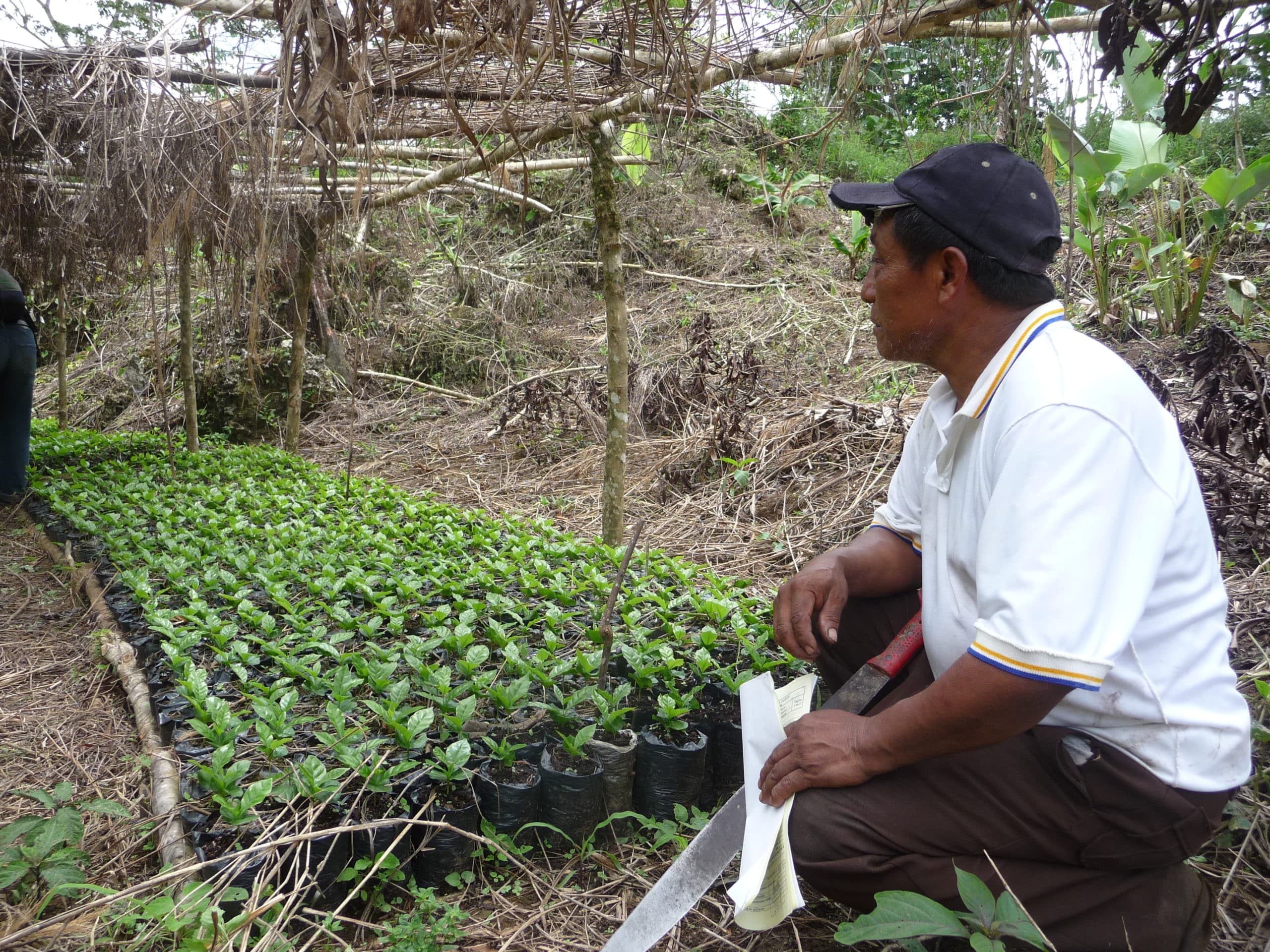

In 2012 and 2013, Root Capital conducted a mobile data management project with Tziscao (pseudonym to protect the confidentiality of our client), a coffee cooperative client in southern Mexico. While not designed as an impact study, the engagement with Tziscao provided us with data pointing to the cooperative’s likely impacts on its farmer members, both in terms of improved livelihoods and environmental performance, as well as a window into Root Capital’s impact on the cooperative. The results are highlighted below and discussed in more detail in the full study.
Last month, we shared the overall findings from a study with Tziscao, a cooperative that markets organic- and fair trade-certified coffee from farmers in the southern Mexican state of Chiapas. In this blog post, we go deeper on the findings related to farmers’ environmental performance, as this engagement represents the first time that Root Capital has tried to evaluate our clients’ impacts on environmental health.
The Study
In environmental impact assessment, Root Capital takes a “practices as proxies” approach, focusing on agronomic practices that have been identified in the literature as important for environmental health at the farm-level. We try to evaluate whether Tziscao’s services – such as agronomic training, fertilizer subsidies, or soil analysis programs, among others – have influenced farmers’ use of these key practices, rather than trying to evaluate changes in scientific indicators of environmental health, such as soil fertility or water pH.
In 2013, the mobile data management project with Tziscao presented us with an opportunity to pilot this approach. We accompanied the cooperative’s agronomic trainers during the annual inspection of members’ coffee farms, interviewing 21 farmers (out of a total membership of 485) on their use of certain agronomic practices both before joining the cooperative and during the past coffee season. For the purposes of the pilot, we focused on the following soil conservation practices:
- Soil fertility measures: Use of organic fertilizers, with an emphasis on the use of coffee byproducts (pulp) as compost.
- Soil erosion prevention measures: Use of live (i.e., vegetative) barriers, soil ridges, and terracing.
We then complemented survey responses with cooperative data on land holdings and current coffee management practices of all producers to get a sense of broader trends.
What We Found
We found that the cooperative has likely contributed to improving members’ farming practices and environmental performance through agronomic training. During interviews, members reported adopting a number of soil conservation practices since joining the cooperative, including:
- Application of organic compost to boost soil fertility;
- Use of leaf litter that builds topsoil and helps retain soil moisture; and/or
- Use of live barriers to reduce wind and water erosion.
One member explained,
“Before I was in the cooperative, I asked myself, ‘Is this [organic production] good? Will it give me results?’ I decided yes. Now, I use pulp and make compost as well… and the plants that we apply [organic fertilizer] to provide good results.”
Farmer interviews indicate that Tziscao has facilitated the adoption of these practices by providing ongoing training in sustainable agronomic practices to comply with the standards of its organic and fair trade certifications. As one member described,
“[Before joining the cooperative] we didn’t know where to go for the information. But now we do. Now that we are in the program, the cooperative trainers provide instructions and tell us how we need to do it. This has given us good results.”
But despite these signs of improvement, Tziscao’s members’ continue to struggle with low productivity – around 1,200 pounds per hectare, as compared to an optimal productivity of 3,000-4,000 pounds in the local context. This suggests that cooperative members lack sufficient access to services and inputs, particularly organic fertilizers that would enable them to maximize the productivity and profitability of their farms.
Now What?
This project represented our first step toward developing a standardized environmental impact assessment methodology that goes beyond our standard due diligence metrics. Since the work with Tziscao, we have developed a more comprehensive environmental module that assesses whether client services, such as agronomic training, have influenced farmers’ use of a suite of sustainable practices. As of the end of 2013, this module is now included in all of our impact studies.
We look forward to sharing the environmental findings from these studies in the coming months, starting with the publication of the Guatemala Cluster Study (see preview here) – a multi-site, comparative impact study with four coffee cooperative clients in Guatemala – later in 2014.